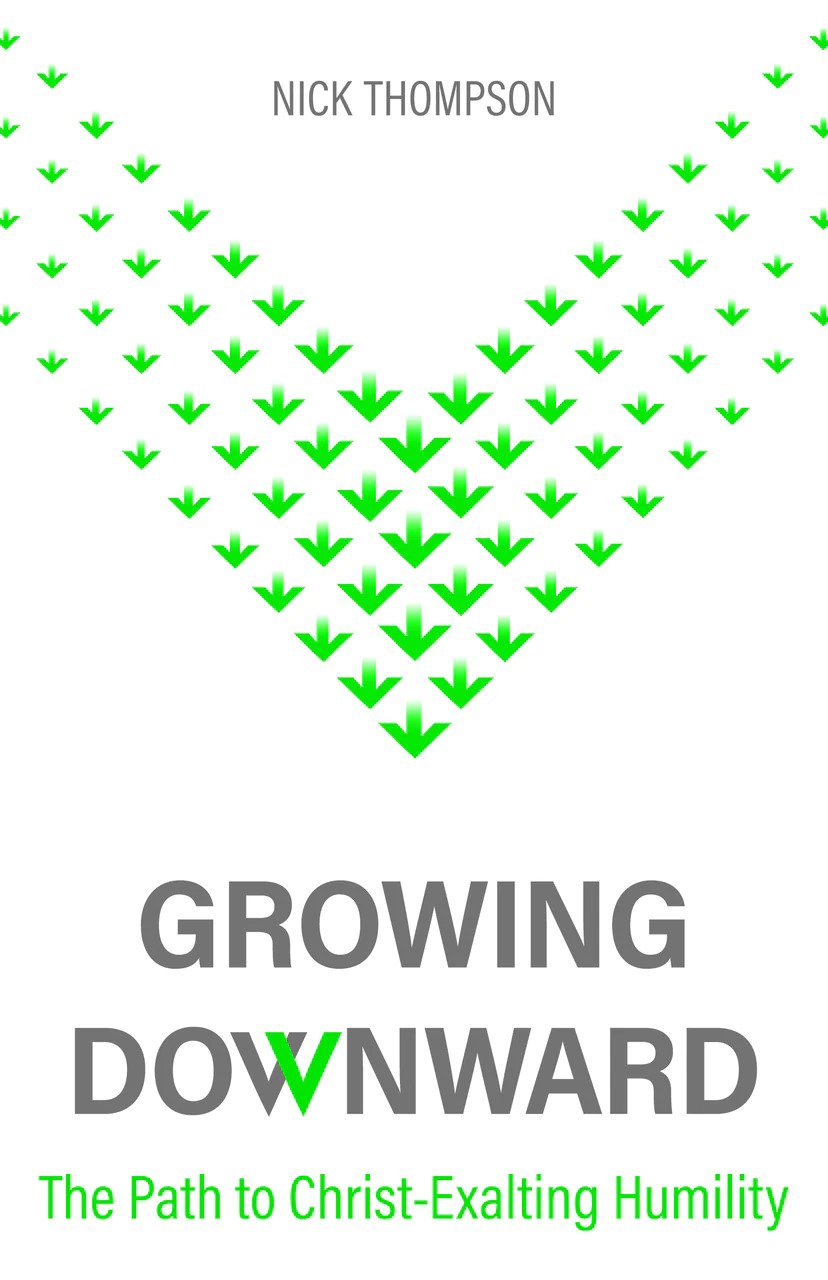Pride is worse than you think.
It’s more than bragging about our successes or posting endless selfies on social media. It’s more than thinking of ourselves as better than other people. In his book Growing Downward: The Path to Christ-Exalting Humility, Nick Thompson diagnoses the extent to which the poison of pride infiltrates our hearts, and he prescribes the antidote: humility.
Humility, as Thompson defines it in his introduction, is “the downward disposition of a Godward self-perception.” (3) When we see both God and ourselves as we truly are, we’re humbled.

Growing Downward: The Path of Christ-Exalting Humility
Nick Thompson
Growing Downward: The Path of Christ-Exalting Humility
Nick Thompson
If pride is our chief foe, then humility is our chief friend, even though its company may be painful. But spiritual growth is a descent—we must grow downward. Thompson walks us through the practical implications of growing downward in humility, leading us to embrace a God-centered perspective on the self. With winsome illustration and warm pastoral instruction, Growing Downward shows us that the path of humility, though difficult, is the way to true meaning and fulfillment in Jesus Christ.
Thompson helps us see how dangerous and insidious pride is. It’s a faith-killer and a joy-robber. He writes, “It is only as we come to understand pride as our greatest enemy that we will learn to embrace humility as our greatest ally.” (x)
So how do we get this ally on our side? The obvious way to get a Godward self-perception is to examine who God is and how sinful we are. That’s crucial—and much of Growing Downward unpacks these ideas. But I also came away with three unexpected ways to pursue humility.
1. Sleep
There are endless needs in the world we could be meeting: work projects to complete, conversations to have with our kids, hungry people to feed, ministries to run, paperwork to fill out. But we spend a third of our lives asleep. Why would God make us this way when there’s so much to do?
Thompson suggests one reason behind our biological drive for slumber: “God has ordained sleep so that you might begin and end every day with a controlling sense of your creatureliness.” (46)
We can’t meet all the world’s needs—or even all the needs of those closest to us. Not on our current schedules, and not if we never needed to sleep again. God is the one who rules and reigns over everything: he orders this world down to every falling sparrow (Matt. 10:29).
God has ordained sleep so that you might begin and end every day with a controlling sense of your creatureliness.
Pride clings to the delusion we’re sovereign instead of God. Humility embraces our creaturely limitations, cheerfully works at what God has given us to do this day, and then goes to sleep.
So get enough sleep each night, take a weekly Sabbath rest, go on vacations, and trust in the Lord.
2. Suffer
While embracing sleep may feel like a hit to your ambition, it probably also sounds pleasant. But suffering? Nobody wants more of that.
And yet pain can work for our good. According to Paul’s chain reaction in Romans 5, suffering leads to endurance, character, and hope. Surely it brings humility too. As we grapple with pain, we see how little control we have over our lives. Our own resources are proved insufficient, so we learn to humbly trust God.
Moreover, Thompson encourages us to see poisonous pride as far worse than suffering:
Take a good look at your own heart. If you really grasp the potential for evil that remains in you, you will fear prosperity more than pain. (153)
Not that we’re to pursue suffering. When Jesus tells us not to be anxious, he’s realistic about life in this fallen world: “Tomorrow will be anxious for itself. Sufficient for the day is its own trouble.” (Matt. 6:34) Like it or not, suffering will find us every day, whether it’s engulfing grief or everyday irritations.
Trusting in the wise providence of our Heavenly Father, we ought to seize these unwelcome pains as reminders to be humble.
Like it or not, suffering will find us every day, whether it’s engulfing grief or everyday irritations.
3. Stop
The Christian life is full of paradoxes. One of them is the call to intentionally grow in godliness while trusting it’s entirely the work of God. So as we pursue humility, we also need, in a sense, to stop trying to get it ourselves.
In his conclusion, Thompson acknowledges the limitations of reading a book about humility. It’s easy to think growing in your understanding of humility is the same thing as growing in humility. But information does little if we’re not being transformed by God’s Spirit.
This means prayer must be the foundation to our pursuit of humility. Rather than making a ten-step list to conquer pride once and for all, we plead with God to do what only he can do: transform our hearts. Thompson urges us, “Let us set our faces to seek the Spirit for this. Let us pray and pray and pray!” Prayer is both an indication of our humility and the path towards it.
When he calls us to humility in Growing Downward, Thompson isn’t holding out a life of dour self-abasement. He beckons us to joy.
The joy of a Christward gaze that beholds his glory. The joy of seeing the depth of our sin and the depth of Christ’s mercy. The joy of knowing we’re loved, adopted, justified, and bound for the eternal kingdom—beyond anything we could ever deserve.
How humbling.















